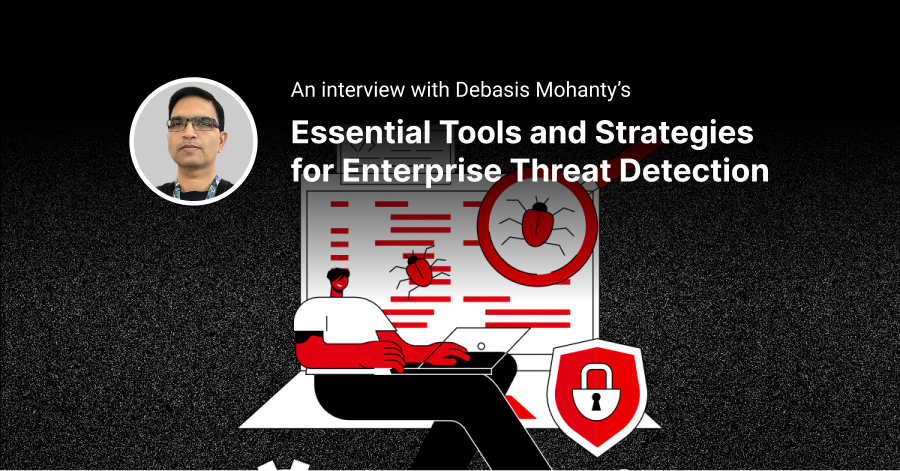When it comes to managed services for your business, you have a few choices: You can go with a Managed Security Service Provider (MSSP), or a Managed Service Provider (MSP). But what's the difference?
In this post, we'll take a closer look at both options and help you decide which is the best fit for your organization.
What is a Managed Service Provider (MSP)?
A managed service provider is a third-party IT service provider that provides a wide range of IT and technical services to businesses from a central location. These businesses often lack the resources or internal ability to run their own systems, databases, and applications. The word "MSP" originally referred to infrastructure- or device-focused services, but it has since come to refer to any ongoing, routine administration, maintenance, and support.
Services offered by an MSP can include - network management, service desk, endpoint management, firewall management, database management, IT strategy and planning, and more. In addition to technical services, an MSP can also provide a variety of other value-added services that may be of benefit to a business, such as business continuity planning, or even cybersecurity services.
Basically, an MSP is responsible for overseeing and maintaining the technological infrastructure of a company. They make sure that an organization has everything required to operate efficiently and smoothly. Utilizing an MSP can save a business time and money, while ensuring that they have the right technology in place to meet their business goals.
Some examples of MSP companies are - Accenture, Capgemini, Infosys, and Cisco Systems.
What is a Managed Security Service Provider (MSSP)?
A managed security service provider (MSSP) is a company that provides outsourced monitoring and management of IT security systems and devices. These services are provided on an ongoing basis and are meant to prevent security breaches and system failures.
Businesses hire MSSPs because it can be cumbersome to put together an internal security team. They also need someone to help them manage their security systems, and to provide assistance in responding to cyber threats and data breaches. With the skills gap in cybersecurity continuing to grow, many businesses are choosing to
outsource their security to an MSSP. This way, they can have the support they need without having to spend time and money on finding and training new staff.
MSSPs started off with firewall management and endpoint security, but have now expanded to include a variety of services that focus exclusively on system and data security. These services include VPNs,
penetration testing, vulnerability assessments, threat analysis, cloud security, compliance, and more.
Some examples of MSSP companies are IBM, Imperva, Qualys, and Trustwave.
MSP vs MSSP
When it comes to managed service providers (MSPs) and managed security service providers (MSSPs), they may seem similar. They're both third-party service providers, and some of their services even overlap. However, there is a big distinction between the two. Take a look at these differences:
The main difference between the two is their area of focus and the services they provide. A Managed Service Provider offers a wide range of services, from IT support to network maintenance. They'll take care of all your organization's needs, big and small. A Managed Security Service Provider, on the other hand, specializes in security. They'll make sure your networks and data are safe from any potential threats. So, while an MSP is responsible for all of your organization's administrative needs, an MSSP focuses on one area: security.
While MSPs enhance usability and performance of your systems and applications, MSSPs protect your organization's information and infrastructure from potential threats. This means that an MSP can focus on your business' needs, while an MSSP can focus on your organization's security.
Moreover, an MSP is more of a reactive service, they are contacted when something goes wrong with a client's systems. Whereas an MSSP is proactive, meaning that they're constantly monitoring your network and infrastructure for suspicious activity. They're constantly keeping an eye on your systems, so that they can take action and prevent attacks before they happen.
Lastly, an MSP typically works out of a network operations center (NOC), which controls network-related issues. An MSSP has a team of specialists that work out of a
Security Operations Center (SOC), that is available 24/7, to address any security-related issues.
Which One is Right for Your Business?
If you're looking for comprehensive security coverage, then an MSSP is the way to go. MSSPs can be very valuable to organizations, as they can help them stay secure and compliant with industry regulations. They're a great option for businesses who want the peace of mind that their data is safe, without having to hire their own security staff.
But if you're mainly interested in getting help with general IT tasks, then an MSP is a better option. They'll take care of all your organization's administrative and IT needs, big and small.
It is also common for many service providers to offer both IT and security services, so that their clients can make use of both. While an MSP may offer cybersecurity services, it may not necessarily have the same 24/7 access and advanced knowledge as an MSSP.
Conclusion
When it comes to picking a managed service provider or managed security service provider for your business, it is not about picking one over the other. It's about picking the one that best suits your needs. To decide which option makes more sense for you, start by evaluating your current requirements, and existing service providers if any. This will give you a clear picture of your administrative and cybersecurity needs and financial priorities.
Grow Your Business Securely with Evolve
Whether you’re trying to expand your business, or protect your clients better, Evolve offers leading security automation tech and ongoing support from our expert team to make sure you are providing the best cybersecurity solutions to clients. By providing a planned and personalized security roadmap, we help clients in managing corporate governance, effective corporate compliance, and risk management. From security orchestration and automation, to penetration testing, incident response, and app security testing, we offer the complete cybersecurity package.
Contact us to schedule a free demo/consultation.






